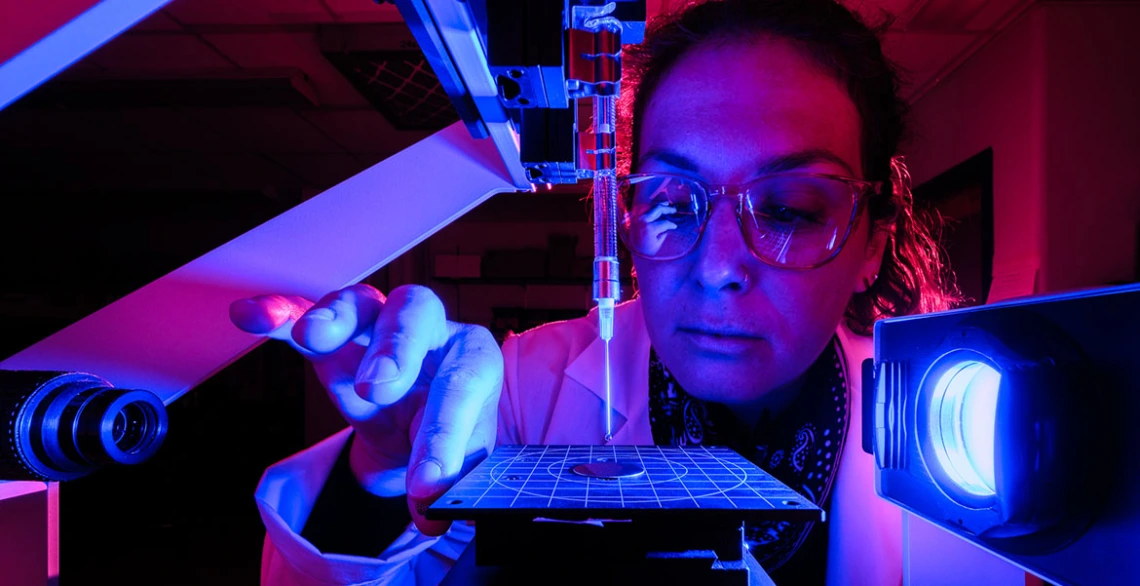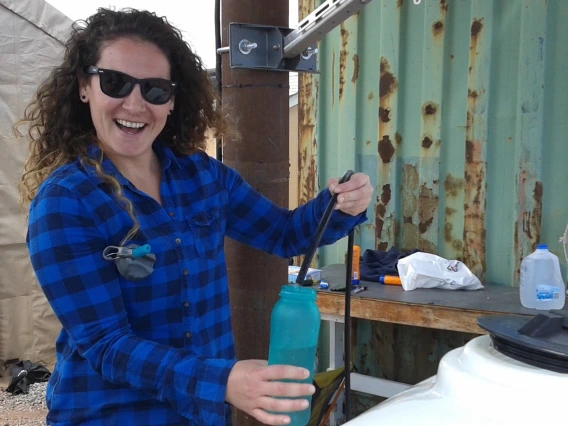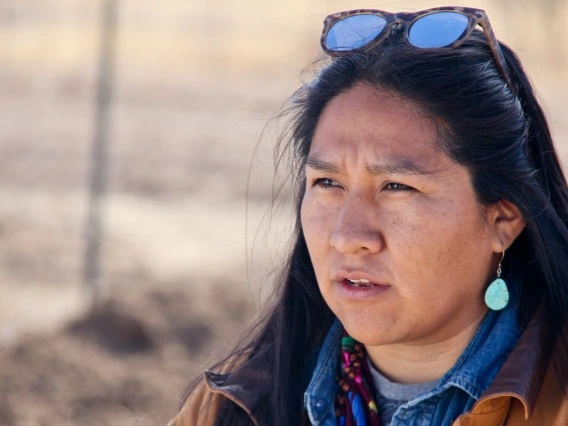$2M Grant Boosts Tribal Community Projects at the Food, Energy and Water Nexus
Vicky Karanikola is co-investigator on a project that supports Indigenous experts, scholars and outreach specialists in developing local solutions to climate issues.

Vicky Karanikola, assistant professor of chemical and environmental engineering, works in the KORES Lab.
The University of Arizona Indigenous Resilience Center will expand its efforts to help tribal communities develop local solutions to climate-related issues thanks to $2 million in funding from the Waverley Street Foundation to support the two-year project "Climate Resilience Through Indigenous Co-Design at the Food, Energy and Water Nexus."
The gift was announced Nov. 3 as part of the public launch of the university's $3 billion fundraising campaign, Fuel Wonder. The launch, coinciding with Homecoming celebrations, included the announcement of $118.65 million in new gifts that will ignite the aspirations and goals of students, faculty and staff.
The funding will maintain and expand existing programs at the center, known as IRes, sustain new Indigenous scholars and other personnel, and support additional outreach efforts with Native nations.
The Indigenous Resilience Center was launched in 2021 to partner with Native nations in order to address environmental challenges in ways that respect Native and Indigenous sovereignty and knowledge, and to train the next generation of community leaders with that knowledge. IRes is a program within the university's Arizona Institute for Resilience and is supported by the institute's Agnese Nelms Haury Program in Environment and Social Justice.
"The Indigenous Resilience Center is a seed that is being watered, a plant that is growing, needed and desired by tribal communities," said Karletta Chief, the project's principal investigator, director of the Indigenous Resilience Center, and a professor and extension specialist in the Department of Environmental Science. "As we grow, I envision us to grow into a center that is connected to and invested in tribal communities, that we become a bridge between the University of Arizona and tribal communities while collaborating with existing Indigenous centers on campus and other tribal programs to be part of the big wheel that is working to support tribal communities."
The San Francisco-based Waverley Street Foundation is a nonprofit that supports "climate solutions that are grounded in and emerge from the day-to-day needs of people and local communities" by funding grant partners working closely with farmers, students, Indigenous peoples and others.
"The Indigenous Resilience Center has maintained and expanded its commitment to building solutions to environmental problems in partnership with Native nations and tribal communities," said University of Arizona President Robert C. Robbins. “I am very grateful for this support from the Waverley Street Foundation, which will help us continue to improve the lives of Indigenous people while respecting and centering their knowledge."
Money from the Waverley Street Foundation will support several of the center's existing programs, including Indigenous Food, Energy and Water Security and Sovereignty, which aims to support the resilience of Indigenous communities by establishing off-grid, solar-powered water and greenhouse units designed, built and operated by Diné (Navajo) citizens. Each unit will include a pressure-driven nanofiltration system to treat non-potable water and provide water security to approximately 30 families. Vicky Karanikola, project co-investigator, assistant professor of chemical and environmental engineering and head of the KORES Lab, focuses on advancing water and wastewater treatment processes with particular interest on material and process optimization at the water-energy nexus interface.



